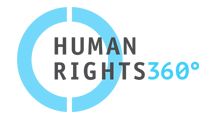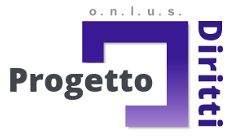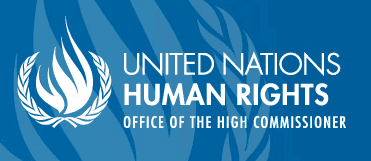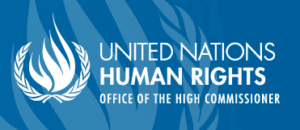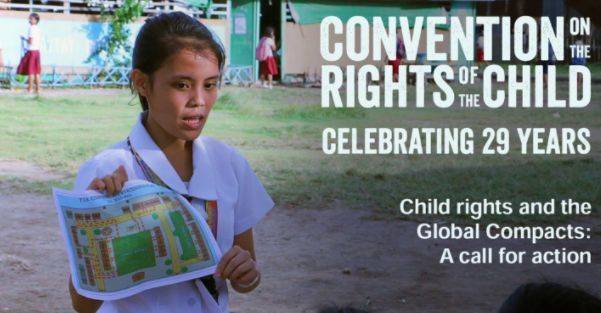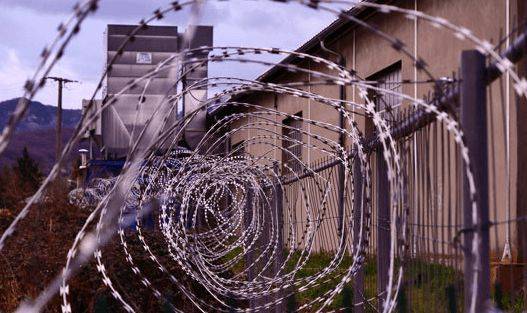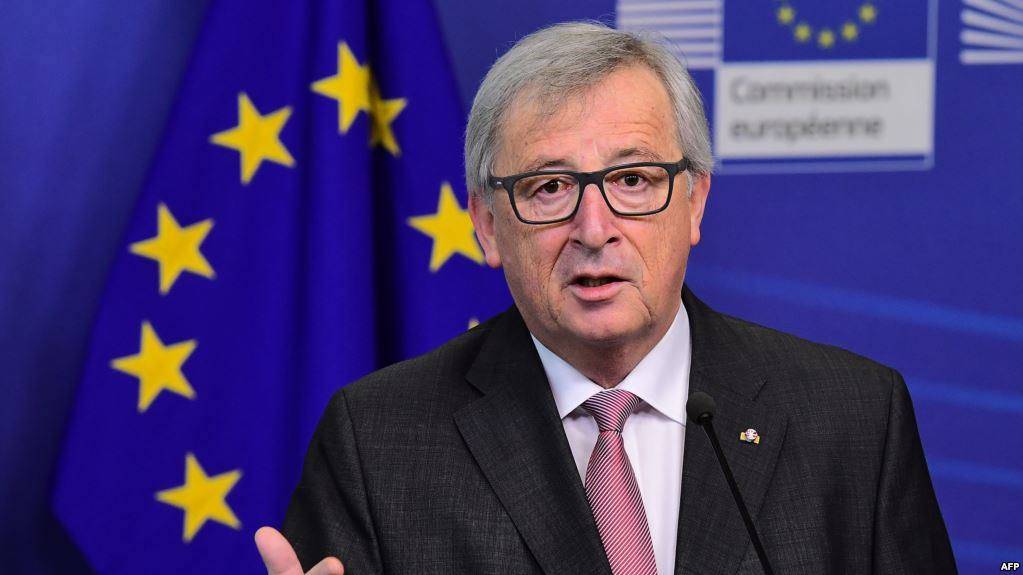On the Frontline in Europe
Greece & Italy Pilot Alternatives to Detention
How can we move away from the increasing reliance on immigration detention in EU border countries, which receive a high proportion of arrivals and are under pressure from the EU to prevent onward movement? In the current political environment, it’s not easy.
But convinced that there is another way, civil society organisations in Greece and Italy are starting alternative to detention (ATD) pilot projects aiming for systemic change on immigration detention. They are joining a group of NGOs at the front line of solutions-based advocacy, working to build migration management systems that respect rights and dignity and don’t rely on detention in Europe.
Greece - Shifting Mindsets Away From Detention
This is the first time a case management based ATD pilot is being implemented in Greece, as increasing recognition of the harmful potential of immigration detention has been drawing attention to alternatives to detention nationwide. Through the pilot, Human Rights 360 aims to constructively engage with both municipal and national authorities to shift mentalities away from detention as the default option and ensure current legal frameworks are being implemented.
Eleni Takou, Deputy Director and Head of Advocacy at Human Rights 360 said:
"The criminalisation of migration has increased homelessness and social tension in Greece. Through the piloting of alternatives to detention we can show that, for example, placing and supporting a family in the community during their migration process increases social cohesion and compliance with the system. In that context, Human Rights 360 wants to be a central unit that leads people to the best outcome possible for their case."
Human Rights 360 will focus their holistic case management efforts on migrants with irregular migration status and those at risk of becoming irregular in Greece. Based in Athens, the pilot will work with at least forty migrants over the next two years providing comprehensive case management, linking to legal, psychosocial, and educational support, as well as facilitating of access to basic services/needs.
Italy – Tackling An Approach That Needs to Change
In Italy, CILD and Progetto Diritti’s pilot will provide holistic case management to migrants at risk of detention, including beneficiaries of humanitarian protection (a type of protection recently abolished), vulnerable individuals, and persons under labour exploitation.
Linking practical implementation with advocacy, the pilot will take advantage of the reach and diversity of expertise within CILD’s civil society coalition and of Progetto Diritti’s case work experience. It aims to support migrants to work resolve their cases while strengthening national evidence and increasing ATD practice among CSOs in Italy.
Flaminia Delle Cese, ATD Pilot Project Manager at CILD said:
“Since 1998 the maximum detention period in Italy has increased from 30 days to 18 months and is currently of 180 days, but such change has not improved efficiency as return rates continue the same. Detention centres cause concern, but most of the work on the topic focuses on conditions of detention rather than alternatives, so the approach needs to change.”
Learning & Evidence on Alternatives to Detention
Operating in challenging contexts on Europe’s borders, the expertise from these pilots can bolster the work of NGOs collectively seeking to reduce immigration detention in Europe. The European Alternatives to Detention Network now has seven members in six EU countries (Bulgaria, Cyprus, Greece, Italy, Poland, UK) each running case management-based pilots designed to meet the needs of their own national context, as an advocacy strategy towards change.
From its start in 2017, the Network has acted as a hub of learning on alternatives based on trust, engagement, dignity and rights. Last year, an interim evaluation of three pilots in the Network showed the positive impact of case management in increasing migrant wellbeing, engagement and case resolution – pointing to new approaches that have transformative potential because they work better for individuals and governments.
For more information about alternatives to detention in Europe or the Europe ATD Network, please contact IDC’s Europe Regional Coordinator Jem Stevens, [email protected] or IDC’s Europe Programme Officer Barbara Pilz, [email protected]
A New Alternative to Detention Pilot for Women in the UK
There’s something different about the newest member of the European Alternatives to Detention (ATD) Network: Action Foundation is the first NGO running a government-initiated and funded alternative to detention pilot project to join the Network, which is working to reduce immigration detention across the region.
Called “Action Access” and based in Newcastle in the UK, the 2-year pilot will provide individualised case management and housing support to vulnerable women who are currently detained at Yarl’s Wood Immigration Removal Centre, or who would otherwise be detained there, to resolve their immigration cases in a more humane and cost-effective way.

Up to 21 clients at a time will be provided with complex and personalised assistance including stable housing as well as impartial information to be able to explore all their options and make informed decisions regarding their life. Case managers will help to improve clients’ access to welfare services and independent legal advice.
The Home Office launched the pilot in December 2018 as part of its detention reform process, which has already seen the detention capacity reduced by 40% since 2015. It’s one of a series of alternative to detention pilots the UK government is planning, to test whether collaboration with faith and community groups can provide better outcomes for individuals through faster case resolution, without the use of detention.
Julian Prior, CEO of Action Foundation, said:
For many years we have successfully supported some of the most vulnerable people at the end of their asylum claim to avoid destitution and provide the stability and help they need to make some informed choices about their future. We are very pleased to use this opportunity to increase our work in this area by supporting women who would otherwise be detained through this new pilot. Early indications of the improvement of the health and wellbeing of clients have been very positive. One participant said that since joining the pilot it had been the first time that she had slept a full night for months.
The European ATD Network links NGO-run ATD pilot projects based on case management in Bulgaria, Cyprus, Poland and the UK. Through practical implementation, solution based advocacy, and qualitative and quantitative evaluation, the Network seeks to build evidence and momentum around engagement-based alternatives to detention, to reduce the use of immigration detention in Europe and build fairer, more humane and transparent migration systems.
As Europe Regional Coordinator for the International Detention Coalition, we’re delighted to welcome Action Foundation to the European ATD Network. We’re seeing growing momentum on engagement-based alternatives to detention in Europe – Action Foundation is leading the way, helping us build learning on how NGO-government collaboration can contribute to change and reduce reliance on immigration detention.
For more information about the pilot project please visit: https://actionfoundation.org.uk/projects/action-access/
- European ATD Network website: https://www.atdnetwork.org/
- Evaluation of alternative to detention pilot projects shows positive impact of case management: https://www.atdnetwork.org/news/evaluation-of-alternative-to-detention-pilot-projects-shows-positive-impact-of-case-management/
For more information about alternatives to detention in Europe or the Europe ATD Network, please contact IDC's Europe Regional Coordinator Jem Stevens, [email protected] or IDC's Europe Programme Officer Barbara Pilz, [email protected]
IMPORTANT: Call for Inputs on Immigration Detention
WHAT: The Committee on the Protection of the Rights of All Migrant Workers and Members of Their Families has decided to elaborate General Comment No. 5 on Migrants’ Rights to Liberty and Freedom from Arbitrary Detention. This is a critical opportunity to provide input and feedback on fundamental human rights issues. The Committee invites all stakeholders to provide inputs to this initiative through a questionnaire by 1 April 2019. The concept note and questionnaire are available in English and Spanish HERE.
HOW: Please send responses electronically in Word format to [email protected] with subject line “Submission for General Comment on Migrants’ Right to Liberty.” Submissions should not exceed 10 pages. Written submissions will not be translated and should preferably be submitted in English, however submissions in French and Spanish will also be accepted. All submissions will be posted on the webpage of the Committee unless explicitly indicated to the contrary.
Any questions should be addressed to the Secretary of the Committee, Mr. Luc Mubiala, at [email protected].
If you would like to inquire about being connected to other organisations in your region also working on responses, please contact the following IDC regional offices:
Americas [email protected]
Europe [email protected]
Africa [email protected]
Middle East & North Africa [email protected]
Asia Pacific [email protected]
Advocating for Alternatives to Detention in Europe
A version of this article was originally published in European Programme for Integration and Migration (EPIM) Policy Update February 2019
What progress are we making towards change to reduce immigration detention? This was the main question we asked ourselves with European Alternatives to Detention (ATD) Network partners, when we met for our fourth regular meeting in Brussels in February.
The context is difficult, with intense political pressure to resolve the perceived crisis of migration in the region. While EU policy is promoting more and longer detention to increase returns and prevent secondary movement, several countries are planning expansions of the use of detention. Effective opposition to detention is becoming harder and harder, as governments feel that they have no option but to do something.
Set up in March 2017, the European ATD Network is a space for strategizing for a different future to the looming dystopia of widening mass detention in Europe – because to achieve reform away from immigration detention, we believe we need to both make it a political problem and provide solutions. The Network links NGO partners running case management ATD pilots in Bulgaria, Cyprus, Poland and the UK, with IDC and PICUM.
We started by developing a shared theory of change, setting out how implementing small alternatives pilots in four countries could build learning, evidence and momentum to work towards the expansion of alternatives and reduction of detention. We sought to address key barriers in Europe: a lack of practice and evidence on engagement-based ATD and limited NGO buy-in for solutions-based advocacy around alternatives.
It was and is a challenging strategy. Can small NGOs, doing structured case management with small numbers of migrants in four countries, really be the seed for wider change across a Europe increasingly in thrall to populism and xenophobia?
Left to themselves, governments are likely to propose ever more extreme forms of coercion and detention, because those are the tools that they have. Can civil society alternatives to detention, based on high quality case management, show that engagement with migrants in the community works better for everyone?
Almost two years on, though geopolitical optimism in general is in even shorter supply, the Network is seeing real progress on our strategy. Momentum around alternatives is building: the European Commission is putting significant political investment into alternatives involving civil society, while a range of regional, national and local stakeholders are increasingly exploring, promoting and collaborating around ATD.
And we now have evidence to point to: EPIM’s first independent evaluation of pilots shows that 97% of migrants stayed engaged – in countries with often high overall rates of secondary movement - and that case management had a positive impact towards case resolution in 88% of cases. The qualitative findings are helping us frame the discussion with decision-makers to address the full complexity of strengthening immigration systems, rather than being limited to crude metrics of short-term return numbers.
But less obvious achievements are equally significant. The Network has become a hub of learning among trusted allies and beyond. Last week in Brussels, we exchanged with NGOs from a host of other countries who are working on ATD as a strategy – from Greece and Lithuania to Belgium and Slovakia. This national-level civil society engagement is crucial for getting governments on board with alternatives that can really lead to detention reduction.
We’ve seen this in the UK, where strategic campaigning linked with advocacy around an ATD pilot has been successful in achieving change. In July 2018, the government made a high-profile commitment to fund further NGO-led alternatives projects as part of detention reform which has already seen the numbers of people in detention reduce by 40%.
There are many ongoing challenges to wrestle with, not least how we can develop alternatives in complex political contexts and work with migrants towards resolving their cases, when there are very few options. It’s also a long-term strategy, as the UK experience shows.
But despite these challenges, levels of confidence at our Network meeting were high. At a time when there’s unprecedented pressure to detain regionally, there was a sense that this growing movement on alternatives could be a catalyst for change - towards migration management systems that produce better outcomes for migrants, communities and governments without relying on detention.
For more information please see:
- The European ATD Network’s website www.atdnetwork.org
- EPIM’s interim evaluation of three alternatives to detention pilot projects (September 2018): www.epim.info/publications/evaluation-report-of-epim-atd-pilot-projects/
The European ATD Network is supported by EPIM. Please also see EPIM Call for Proposals: "Unlocking Alternatives. Piloting new pathways to migrant case resolution." Deadline for proposals is 4 April, 2019.
Celebrating 29 Years of the CRC
On Tuesday November 20th, the Initiative for Child Rights in the Global Compacts held an event at the Palais des Nations, “Child Rights and the Global Compacts: A Call For Action,” to commemorate 29 years of the Convention on the Rights of the Child. The Keynote Speakers were:
- H.E. Ambassador Socorro Flores Liera of the Permanent Mission of Mexico
- H.E. Ambassador Eunice Kigenyi of the Permanent Mission of Uganda
- Video Message from several Syrian and Afghani girls experiencing forced migration
A panel of experts discussed and defined concrete actions and initiatives, with a multi-stakeholder approach, that will contribute to putting children’s rights at the heart of the implementation of the Global Compacts. Panelists included:
- Philip Jaffe, Member of the UN Committee on the Rights of the Child
- Ellen Hansen, Senior Policy Advisor to the Assistant High Commissioner for Protection
- Michele Klein Solomon, Director, Global Compact for Migration, IOM
- Peggy Hicks, Director of Thematic Engagement, Special Procedures & Treaty Bodies Division
- Laurent Chapuis, Regional Advisor, Migration, UNICEF
- Constanza Martinez, UN Representative, World Vision
- Moderated by - Delphine Moralis, Secretary-General, Terre Des Hommes
The Global Compact on Refugees and the Global Compact on Safe, Orderly and Regular Migration were adopted the very next day.
JRS Report on the Detention of Trafficked Men
IDC partner, JRS UK, has released a report based on the experience of 13 trafficked men. The report finds that a fundamental conflict between supporting trafficking victims and immigration control meant that victims continued to be detained. The UK government often ruled people in detention were not victims despite strong evidence to the contrary, and even those acknowledged to be likely victims were sometimes still detained due to immigration factors. Convictions and instances of non-reporting that were a direct result of being trafficked and held in modern slavery were routinely used to justify continued detention.
Download Below
TOPICAL BRIEFING: Survivors of Trafficking in Immigration Detention, October 2018
Recast Return Directive Foresees More Immigration Detention
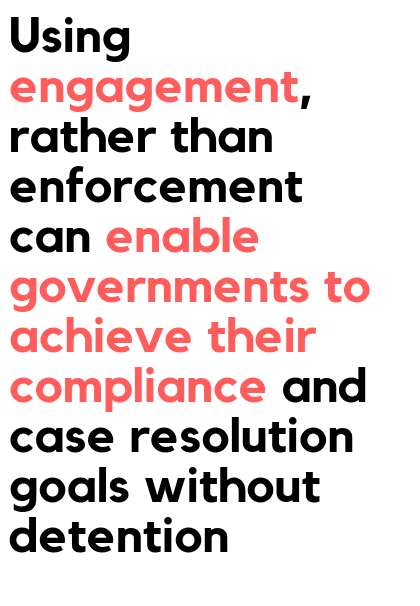 On 12 September 2018, in his state of union speech, European Commission President Jean-Claude Juncker announced a Recast of the Return Directive to “accelerate the return of irregular migrants,” among a series of measures on migration.
On 12 September 2018, in his state of union speech, European Commission President Jean-Claude Juncker announced a Recast of the Return Directive to “accelerate the return of irregular migrants,” among a series of measures on migration.
The legislative proposal foresees more immigration detention to “support enforcement of return”, in particular it introduces:
- a requirement for Member States to “allow for an initial detention period of not less than 3 months” of pre-removal detention;
- a new ground for detention where people subject to a returndecision “pose a threat to public order or security”
- 16 common criteria for determining risk of absconding, including broad grounds such as “illegal entry” and lack of financial resources.
Other changes include a new “obligation to cooperate”, a new border procedure and limiting possibilities for voluntary departure and appeals.
The proposals broadly reflect the Commission’s approach in its 2017 policy package which seeks to increase the rate of returns through enforcement-based measures.
These increased measures have been proposed despite well-established and wide-scale concerns that detention is harmful to health and wellbeing and causes unnecessary suffering. In addition, immigration detention is an extremely costly policy that is challenging to implement, and rarely fulfils its objectives.
Numerous alternatives to detention exist that are less costly, and do not risk an infringement on the human rights of migrants. Using engagement, rather than enforcement to build trust and support migrants and enable governments to achieve their compliance and case resolution goals without detention.
For more information:
- Proposal for a Directive of the European Parliament and of the Council on common standards and procedures in Member States for returning illegally staying third-country nationals (recast)
- European Commission – Press release: State of the Union 2018 – Commission proposes last elements needed for compromise on migration and border reform
- ECRE publishes comments on the Commission Proposal for a Recast Return Directive (ECRE, 30 November 2018)
- European Commission releases proposal to recast Return Directive (ECRE, 14 September 2018)
- EU to shore up borders, returnsand migrant detentions (EUobserver, 12 September 2018)
- EU Eyes Beefed-Up Coast Guard to Protect Outside Borders(New York Times 12 September 2018)
Evidence That Alternatives to Detention Can Be Effective
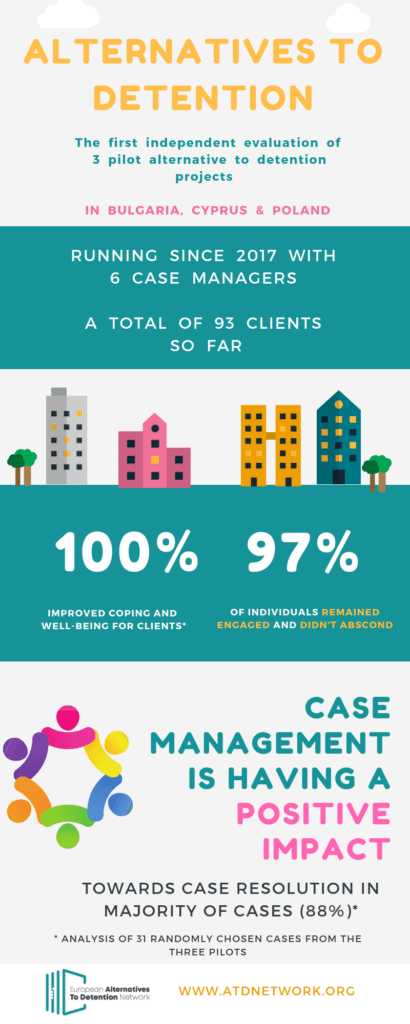 The first independent evaluation report on three alternatives to detention pilot projects in the European ATD Network is now out.
The first independent evaluation report on three alternatives to detention pilot projects in the European ATD Network is now out.
Read the Report and Briefing Paper.
In the context of increased pressure across Europe to detain migrants, the interim evaluation provides evidence that community-based case management can be effective in helping migrants to work towards resolving their cases in the community.
The pilot projects in Bulgaria, Cyprus and Poland provide holistic case management, as part of an advocacy strategy for reducing immigration detention.
They aim to build evidence that detention is not the solution: with support and engagement, people can resolve their cases in the community without harmful and costly detention.
The interim evaluation finds that 97% of migrants on the pilots cooperated with case management and did not abscond, including in countries with high overall rates of secondary movement.
The evidence of the pilots shows that through quality case management, people can better engage with immigration procedures to work towards resolving their cases, providing better outcomes for individuals and governments. This is including in cases of great complexity and previous experience of detention.
This is one of the first qualitative evaluations of alternatives to detention, and can provide important learning on how to develop effective and sustainable alternatives, in a context where discussion often focuses on crude numbers of returns and absconding.
The findings are a step towards bridging the gap between the growing discussion of alternatives in Europe, and the need for practical development of effective engagement-based models.
The report also provides insight into how, practically, a case management pilot project can be set up, and the challenges faced, which can support further pilots for evidence-building. A further evaluation will be conducted in the future.
The pilots and the evaluation are funded by the European Programme for Integration and Migration.
More information on the alternative to detention pilot projects and the European ATD Network is available at www.atdnetwork.org.
Trust & Support is Key to Effective ATD
New guidance from the Council of Europe could help European governments refocus on the kind of alternatives that really work to reduce harmful and expensive immigration detention.
A detailed and practical guide, it uses a broad understanding of alternatives to immigration detention, “across a range of non-restrictive and restrictive options, in order to consider a wider range of practices that can help states avoid the use of detention in the context of migration”.
The Analysis of the legal and practical aspects of effective alternatives to detention in the context of migration was adopted by representatives of all forty-seven member States of the Council of Europe, through its foremost inter-governmental human rights body, the Steering Committee on Human Rights.

It analyses the European and international standards relevant to alternatives to detention and provides guidance on the practical aspects of implementing effective alternatives, recognising persisting challenges in this field.
But the real added value of the document is that it sets out key elements which make alternatives to detention effective. According to the study, alternatives are more effective in terms of ensuring respect for human rights, compliance and cost efficiency when they:
- Use screening and assessment to address individual circumstances, including vulnerabilities and risks;
- Provide clear and precise information about rights, duties and consequences of non-compliance;
- Ensure access to legal assistance from the beginning and throughout the process;
- Build trust in asylum and migration procedures;
- Uphold individualised case management services;
- Safeguard the dignity and fundamental rights of the persons concerned.
This holistic approach to migration systems helps move beyond the traditional focus in Europe on types of risks and conditions, to understand the factors that help achieve government objectives while also ensuring the rights and welfare of migrants.
“The Analysis highlights that by building trust and supporting migrants, governments can achieve their compliance and case resolution goals without detention” said Jem Stevens, IDC’s Europe Regional Coordinator, “Council of Europe governments have agreed that to ensure detention is really a last resort, they can and should be trying this approach first.”
The Analysis is the result of over a year’s work carried out by Council of Europe’s Drafting Group on Migration and Human Rights (CDDH-MIG) in 2016 – 2017. In terms of follow-up, it suggests developing a practical and user-friendly handbook for authorities on effectively implementing alternatives to immigration detention as a next step to this work.
Country Reports on Child - Sensitive Migration
Kids Empowerment, a Paris-based NGO and IDC member, aims to empower children and youth by helping them assert their rights, as well as advocate for the compliance of international law in the protection of migrant children. Part of their work involves creating and publishing comparative country reports, which look at the legal framework affecting children on the move both in transit and receiving countries. Their goal is to identify best practices and highlight areas that should be improved, and to provide technical guidance to public authorities and private organisations working in the field of children’s rights.
Key issues addressed in their reports are – among others - basic fundamental rights, access to justice, conditions in reception centres, family reunification, guardianship, age assessment, best interest of the child in the asylum process, deportation and automatic returns. They also include a section on detention.
Country reports for Czech Republic, Finland, Italy, Mexico and Ukraine are already available.
More information can be found on their website, https://kidsempowerment.org

